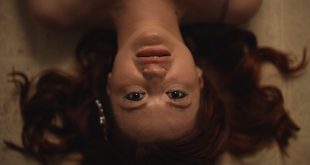Everyone agrees this is a failure of a movie. Spoilers (if it were possible to spoil this movie any more than it already is) follow. As writers and filmmakers, what lessons can we learn?
Plot problems: The plot follows the formula “Hotshot FBI Agents come into town and bump heads with the local police while trying to solve a mysterious crime.” Hansel and Gretel are the FBI Agents — witch hunters — and appropriately, the antagonist, the village sheriff is identified early on in act one. Inappropriately, he is killed off about the middle of the film, but not by one of the heroes or anyone who has a good reason to kill him. My reaction was, “Huh?”
Another problem with the plot is inconsistency. When you set up a fantasy world, whether in Middle Earth or Tatooine, viewers will not object to the natural laws of your imaginary universe, even if how or why they function is not fully explained. What they will find upsetting is if you are not consistent in their application. In Hansel & Gretel the magic of evil witches “will not work against a white witch.” Except, inexplicably, and at the most critical moments, sometimes it does. “Huh?”, number two.
There are several other “huh?” moments as well.
Dialogue: When writing a period piece, a decision that needs to be made early is the patois – the variation of the language they speak. The English spoken in Gone with the Wind is not the same English spoken in Goodfellas. When you place your period piece in a foreign country, you also need to consider accents? An example of accents poorly done: In Highlander, a French speaker plays a Scotsman opposite a Scotsman playing a Spaniard. My ears!
There are basically two options. One, make your dialog sound “olde” with “thee’s and thou’s” or other dated words or phrases. The danger here is overdoing it and making the dialogue sound affected or silly. The second option, is to use contemporary English. This was done well in A Knight’s Tale. The way you can go wrong with the second option is to use slang or words associated with a time period inappropriate for your story.
In Hansel & Gretel someone chose the second option. The very first line we hear the grown up Gretel speak, as she points a gun at the head of the town sheriff is: “Let the woman go or I’ll blow your f***ing brains all over these hillbillies.” We’ll come back the the profanity in a moment, but “these hillbillies”? You are immediately taken out of the context of what appears to be an 18th Century German town. The town isn’t even in the hills.
It get’s worse. The brother and sister team meet up with a fanboy. He even calls them “awesome”. Not “awesome” in a King James “awesome God” sense, but in a “Dude, totally awesome” sense. So, you might be thinking, “Then this was a comedy or a farce, right?” This leads us to the next problem.
Genre: Pick one and stick with it. One imagines going in that Hansel & Gretel, inspired by a children’s fairy tale, might be OK for kids, or a clever send up of fairy tales, like The Princess Bride or Shrek. No. So, when we here Gretel’s first line, we think that it’s going to be a raunchy comedy. There are a few laughs, but not many.
Then we see Hansel giving himself a shot with a syringe. He got “the sugar disease” from the evil witch trying to fatten him up as a child. OK, we think, now this is going to get crazy. No.
Is it satire? One of the early visuals is of the village milkman delivering porcelain milk bottles with woodcuts of missing children pasted to them. Get it? Good, but that’s about where the biting satire ends.
There are many opportunities for humor, but they are never picked up on. It ends up not being funny enough to be a comedy, just too silly to be a drama, and not really all that scary.
Lessons Learned: I will speak up for the actors. They did as good a job as could be expected with what they had to work with. Don’t blame this on Jeremy Renner (Hansel) or Gemma Arterton (Gretel).
Other reviews get into the 3-D, music and special effects, and there were problems. I think at a certain point they become irrelevant. A well-structured plot, with relatable, human characters, can overcome bad CGI and a minuscule production budget. However, if the story is lacking and the characters are not credible, then all the loud music and special effects at Skywalker Ranch won’t matter. This film was so bad, towards the end I was wishing for a cameo appearance by Jar Jar Binks. Even that would have helped.
 Blogcritics The critical lens on today's culture & entertainment
Blogcritics The critical lens on today's culture & entertainment



